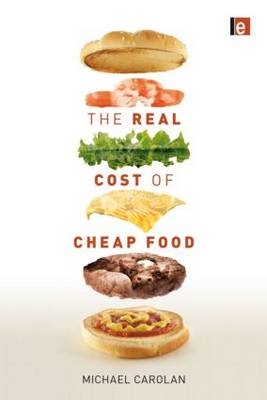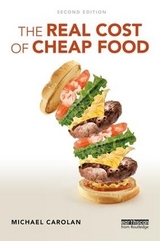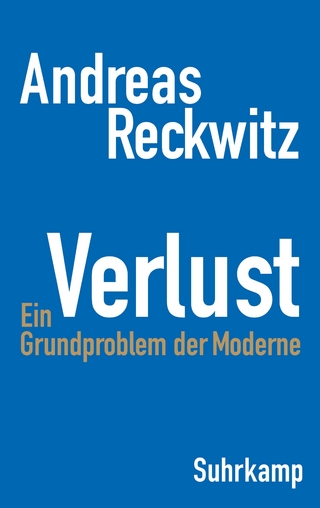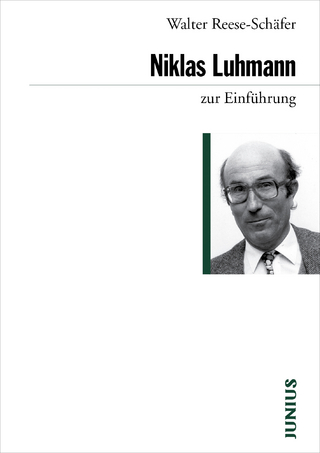
The Real Cost of Cheap Food
Seiten
2011
Earthscan Ltd (Verlag)
978-1-84971-321-4 (ISBN)
Earthscan Ltd (Verlag)
978-1-84971-321-4 (ISBN)
- Titel erscheint in neuer Auflage
- Artikel merken
Zu diesem Artikel existiert eine Nachauflage
Critically examines the dominant food regime on its own terms, by seriously asking whether we can afford cheap food and exploring what exactly cheap food affords us. This title details the numerous ways that food has become reduced to a state, such as a price per ounce, combination of nutrients, yield per acre, or calories.
This challenging but accessible book critically examines the dominant food regime on its own terms, by seriously asking whether we can afford cheap food and exploring what exactly cheap food affords us. Detailing the numerous ways that food has become reduced to a state, such as a price per ounce, combination of nutrients, yield per acre, or calories, the book argues for a more contextual understanding of food when debating its affordability.
The author makes a compelling case for why today's global food system produces just the opposite of what it promises. The food produced under this regime is in fact exceedingly expensive. Thus meat production and consumption are inefficient uses of resources and contribute to climate change; the use of pesticides in industrial-scale agriculture may produce cheap food, but there are hidden costs to environmental protection, human health and biodiversity conservation. Many of these costs will be paid for by future generations – cheap food today may mean expensive food tomorrow. By systematically assessing these costs the book delves into issues related, but not limited, to international development, national security, health care, industrial meat production, organic farming, corporate responsibility, government subsidies, food aid and global commodity markets. The book concludes by suggesting ways forward, going beyond the usual solutions such as farmers markets, community supported agriculture, and community gardens. Exploding the myth of cheap food requires we have at our disposal a host of practices and policies. Some of those proposed and explored include microloans, subsidies for consumers, vertical agriculture, and the democratization of subsidies for producers.
This challenging but accessible book critically examines the dominant food regime on its own terms, by seriously asking whether we can afford cheap food and exploring what exactly cheap food affords us. Detailing the numerous ways that food has become reduced to a state, such as a price per ounce, combination of nutrients, yield per acre, or calories, the book argues for a more contextual understanding of food when debating its affordability.
The author makes a compelling case for why today's global food system produces just the opposite of what it promises. The food produced under this regime is in fact exceedingly expensive. Thus meat production and consumption are inefficient uses of resources and contribute to climate change; the use of pesticides in industrial-scale agriculture may produce cheap food, but there are hidden costs to environmental protection, human health and biodiversity conservation. Many of these costs will be paid for by future generations – cheap food today may mean expensive food tomorrow. By systematically assessing these costs the book delves into issues related, but not limited, to international development, national security, health care, industrial meat production, organic farming, corporate responsibility, government subsidies, food aid and global commodity markets. The book concludes by suggesting ways forward, going beyond the usual solutions such as farmers markets, community supported agriculture, and community gardens. Exploding the myth of cheap food requires we have at our disposal a host of practices and policies. Some of those proposed and explored include microloans, subsidies for consumers, vertical agriculture, and the democratization of subsidies for producers.
Michael Carolan is an Associate Professor of Sociology at Colorado State University, USA. He is the author or co-author of over 60 peer-reviewed articles in addition to several books, including 'Decentering Biotechnology' and 'Embodied Food Politics'.
Acknowledgements 1. Introduction 2. Cheap Food, Globalization and Development 3. Cheap Food and Conflict 4. Cheap Food, Hunger and Obesity 5. Cheap Meat 6. Cheap Food and the Environment 7. Cheap Food... But at What Price? 8. Cheap Food, Community and Culture 9. Cheap Food: Who Wins? 10. Making Food Affordable. Index
| Erscheint lt. Verlag | 5.8.2011 |
|---|---|
| Reihe/Serie | Routledge Studies in Food, Society and the Environment |
| Verlagsort | London |
| Sprache | englisch |
| Maße | 156 x 234 mm |
| Gewicht | 460 g |
| Themenwelt | Sozialwissenschaften ► Soziologie |
| Wirtschaft ► Volkswirtschaftslehre | |
| Weitere Fachgebiete ► Land- / Forstwirtschaft / Fischerei | |
| ISBN-10 | 1-84971-321-9 / 1849713219 |
| ISBN-13 | 978-1-84971-321-4 / 9781849713214 |
| Zustand | Neuware |
| Haben Sie eine Frage zum Produkt? |
Mehr entdecken
aus dem Bereich
aus dem Bereich
Ein Grundproblem der Moderne | Die erste umfassende Studie zum …
Buch | Hardcover (2024)
Suhrkamp (Verlag)
32,00 €



